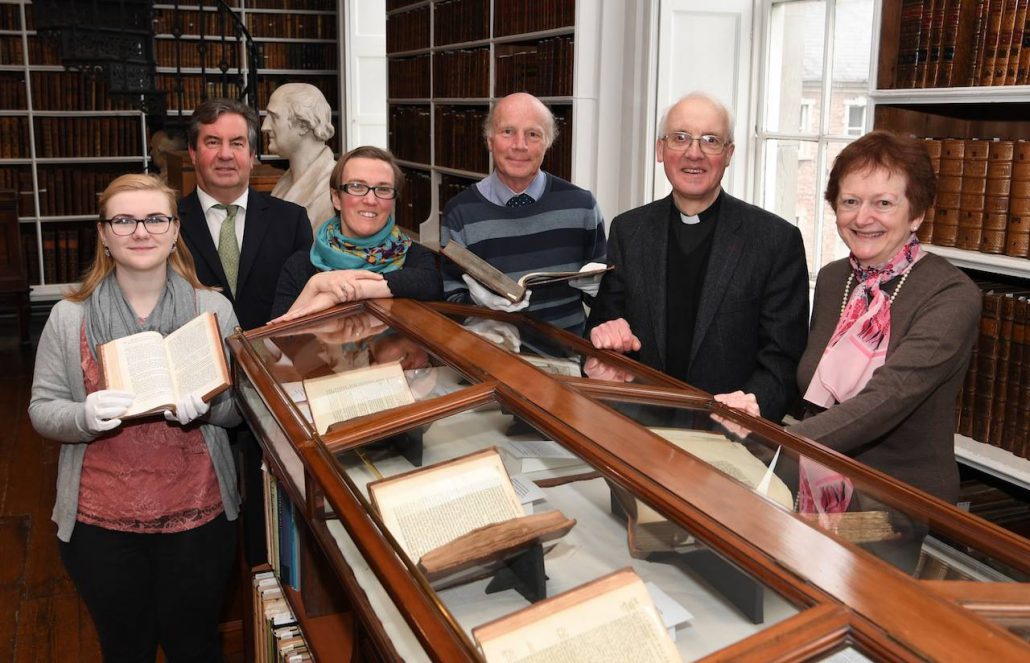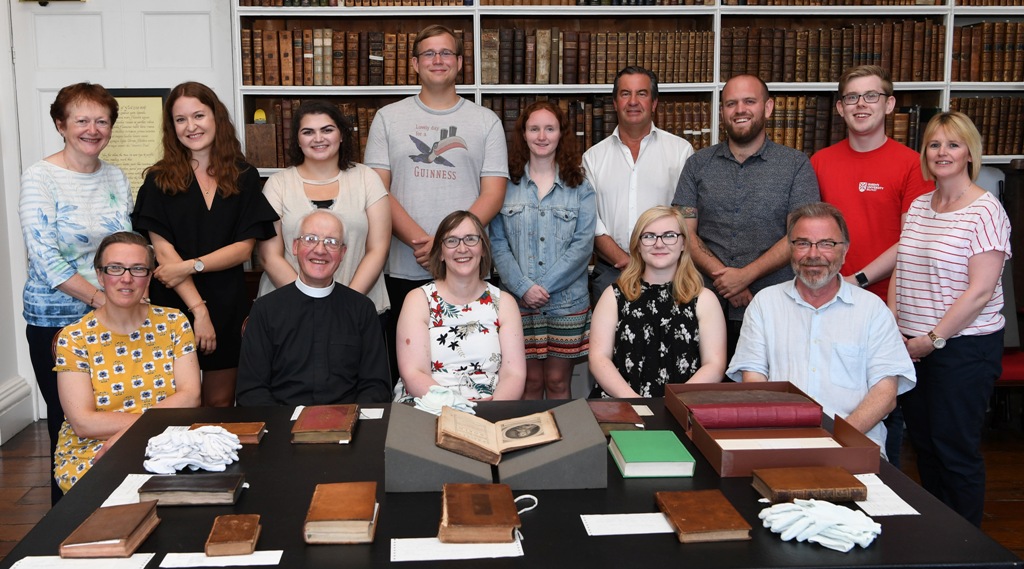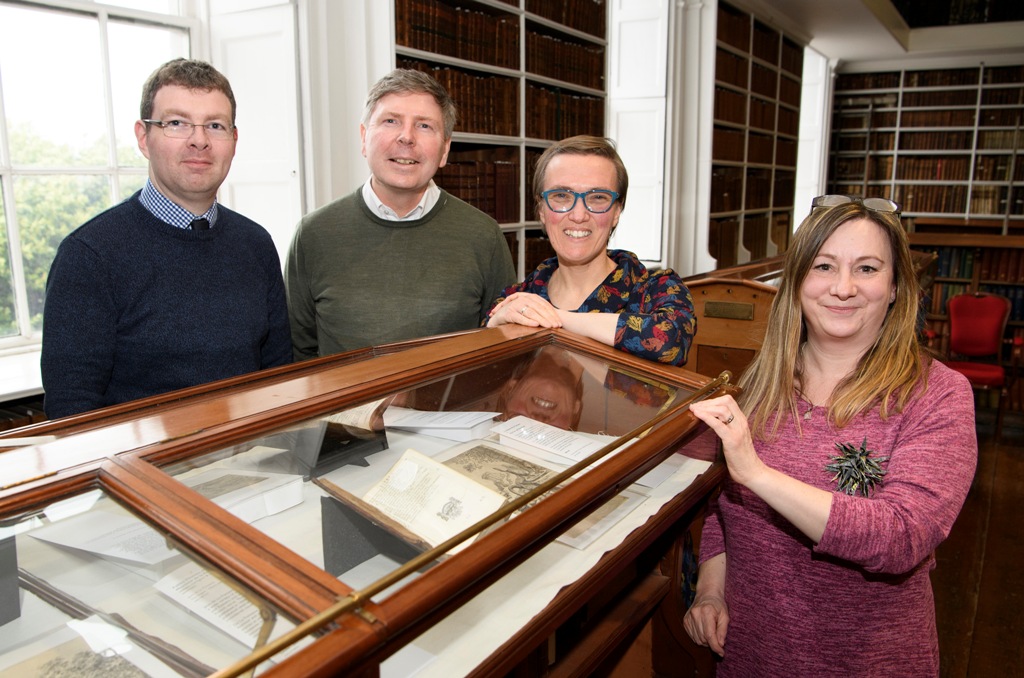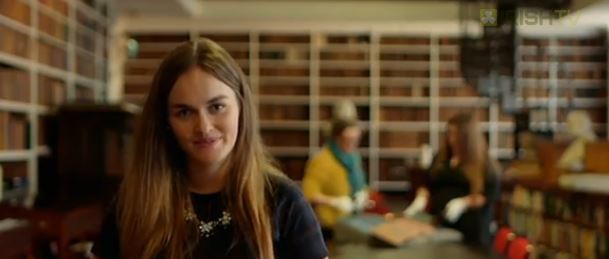
Our latest temporary exhibition on astronomy was launched by Professor Michael Burton, Director of Armagh Observatory and Planetarium. The theme of astronomy was chosen to show visitors examples of what the Library holds on this subject, and to help celebrate the fiftieth anniversary of the Armagh Planetarium.
The exhibition has copies of works, printed between 1579 and 1810, and by astronomers from England, Scotland, France and Germany. It includes a copy of Isaac Newton’s works, ‘A New and Most Accurate Theory of the Moon’s Motion Whereby All Her Irregularities May be Solved, and Her Place Truly Calculated to Two Minutes’, printed in London in 1702. Although Newton’s theory is not as accurate as he claimed it to be, it was far more accurate than any other at the time.
Also on display is an even earlier work, with the title, ‘A judgement of the Comet which became first generally visible to us in Dublin December XIII, about 15 minutes before 5 in the evening Anno Dom. 1680’, which was printed in 1682 by ‘a person of quality’. It records that a very large and bright comet was seen in the sky throughout much of the Northern Hemisphere. Discovered by the German astronomer, Gottfried Kirch, it was the first comet to be observed through a telescope. It was apparently so bright that it was visible even during daytime! Aptly called the Great Comet of 1680, it was also known as Kirch’s comet.
The Keeper of the Library, the Very Revd Gregory Dunstan, said, “Astronomy is the oldest of all the sciences, practised by ancient civilizations on at least five continents. It gave rise to calendars, and could provoke both wonder and alarm. The Library holds examples from the foundational years of European science, and we are delighted to celebrate the fiftieth anniversary of one of Armagh’s newer institutions in this way.”
In launching the exhibition, Professor Burton said, “Armagh has a remarkable astronomical history and heritage, with its Observatory being the oldest astronomical institution in the UK and Ireland, many of its original instruments and telescopes still existing in situ. Our Planetarium also celebrates its fiftieth anniversary in a few weeks, again the oldest in these islands. It’s wonderful to be launching this exhibition today that enriches this tradition, encapsulating humanity’s wonder about the Cosmos and our place in it. Our attempts to ascertain order in the motion of heavenly bodies was the driver behind the scientific revolution of the Renaissance that underpins the technological civilisation of today.”
The exhibition which was curated and displayed by the Library’s Archivist, Thirza Mulder and Visitor Assistant, Rachel Toner, will be on display until the end of June 2018. Admission to Armagh Robinson Library is free, with donations welcome.
Image credit: Ian Maginess




